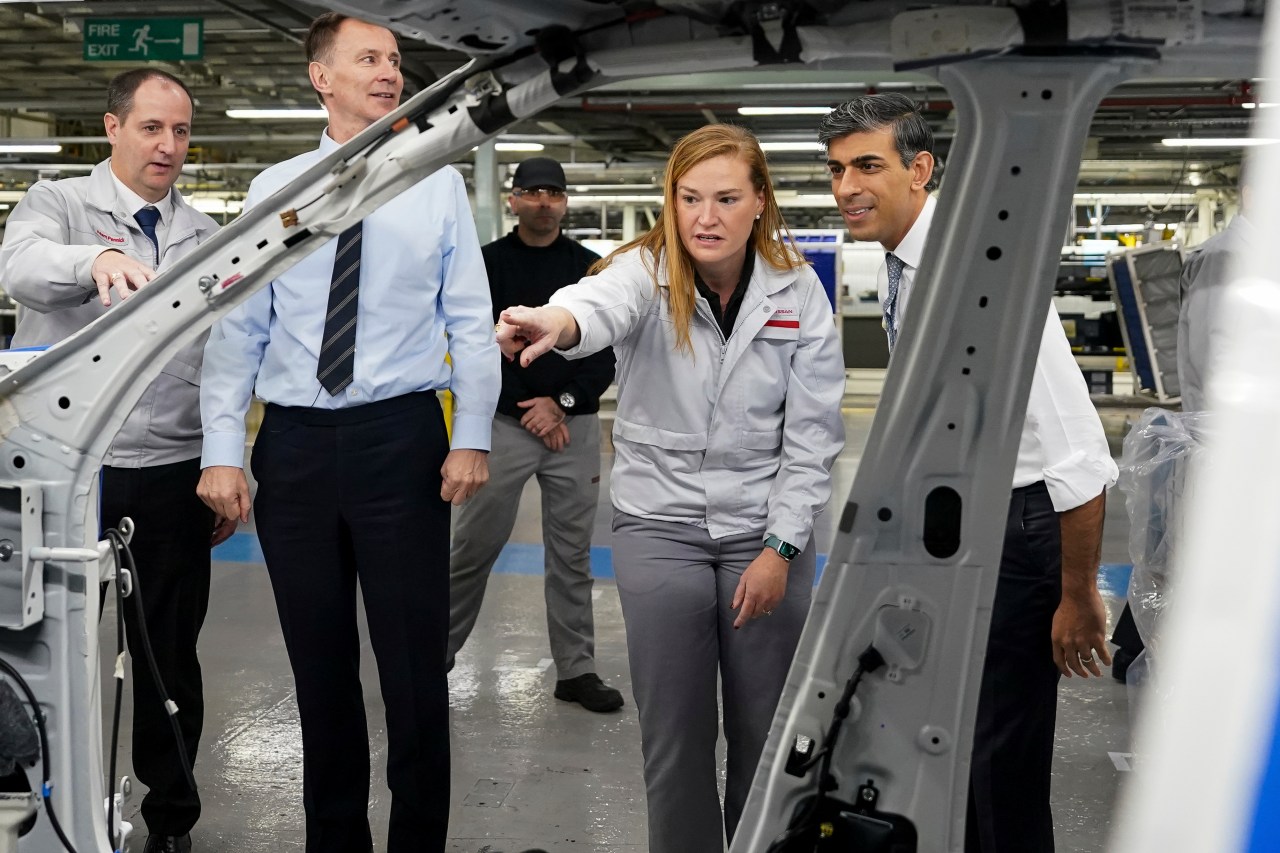Nissan to Invest $1.4 Billion for EV Versions of Top-selling Cars at UK Plant

Nissan’s Major Investment in Electric Vehicle Production in the UK
Moving towards sustainable mobility, Nissan, a renowned Japanese automaker, will invest a whopping $1.4 billion in upgrading its factory in northeast England. The primary aim of this investment is the production of electric versions of its top-selling cars, the Qashqai and the Juke. This move is a welcome boost for the United Kingdom government in its efforts to rejuvenate the country’s struggling economy.
Revamping Sunderland Factory for Electric Vehicle Production
The Sunderland factory, which employs 6,000 workers, currently makes gasoline or gas-hybrid versions of the Qashqai and the smaller Juke crossover vehicles. Nissan plans to directly invest up to 1.12 billion pounds ($1.4 billion) to facilitate the production of electric successors to these popular models. This investment will also support infrastructure projects, including a new gigafactory for EV batteries and a boost to the supply chain.
An Economic Boost for the UK
“Nissan’s investment is a massive vote of confidence in the UK’s automotive industry,” which contributes 71 billion pounds annually to the economy, noted Prime Minister Rishi Sunak. The Prime Minister visited the factory during the announcement, accompanied by Treasury chief Jeremy Hunt, and met with workers and plant staff.
Future Electric Vehicle Models from Nissan
In addition to the electric versions of the Qashqai and the Juke, Nissan also plans to manufacture the next generation of its long-established Leaf electric car at the Sunderland factory. The company had previously stated in 2021 about its plans to manufacture an electric vehicle alongside batteries made by supplier AESC, owned by China’s Envision. With this recent announcement, a third gigafactory will be added to the Sunderland site.
Nissan President and CEO Makoto Uchida stated that EVs are “at the heart of our plans to achieve carbon neutrality”. The company aims to electrify its entire European passenger car lineup by 2030. “With today’s announcement, we are making that vision happen,” Uchida announced at the plant, which temporarily halted production for the ceremony.
Nissan’s Position in the Post-Brexit Scenario
The future of Nissan’s Sunderland factory had been uncertain following Britain’s 2016 vote to leave the European Union. Brexit opponents warned about the potential economic damage with companies like Nissan possibly facing tariffs on exports to the EU. The auto industry anticipates a 10% post-Brexit trade tariff, effective January, potentially raising the cost of new EVs. However, Nissan, being the only carmaker in the UK with a dedicated battery plant nearby, is in a strong position to navigate these challenges.
Electric Vehicle Transition in the UK
Nissan joins other carmakers transitioning to EV production in the UK. BMW announced a 600 million-pound investment into its Mini factory in Oxford, England, to start making EVs by 2026. Tata Sons, the Indian owners of Jaguar Land Rover, are building a 4 billion-pound EV battery factory expected to produce about 40 gigawatt hours of battery cells annually, thus providing half of the UK’s EV batteries. Stellantis, Vauxhall’s parent company, is investing 100 million pounds for the production of electric vans and cars in northwestern England.
—
Read More Pennsylvania News



Leave a Comment